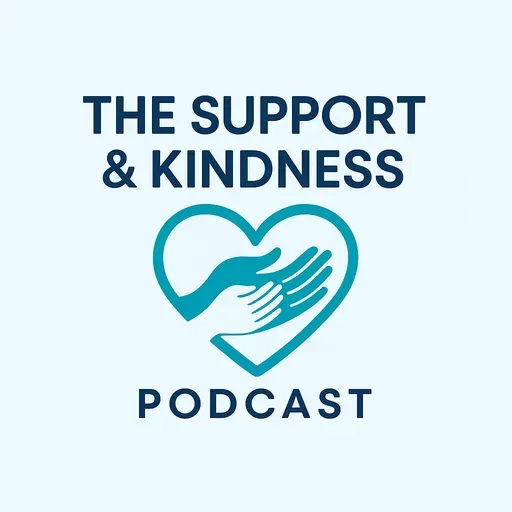
Title: When Your Mind Goes Blank (Episode 1)
Podcast: The Support and Kindness Podcast with Greg and Rich
Episode Summary In our very first episode, Greg and Rich introduce The Support and Kindness Podcast and dive into a common, often scary experience: when your mind goes blank. Drawing from their lived experience with brain injury, anxiety, seizures, and depression, they share practical ways to reorient, reduce anxiety, and move forward with compassion. This short, real-talk episode is meant to remind you you’re not alone—and that this happens to everyone.
Key Topics
Why minds go blank: It’s normal and human, not a personal failure
Quick ways to reorient when you freeze
Using context clues to regain the thread
Simple grounding and breath practices to calm the nervous system
Being gentle with yourself: no harsh self-judgment
Giving yourself permission to pause or step away
Practical Tips Mentioned
Ask orienting questions:
What’s going on?
Where am I?
What was I doing?
Use context clues:
Check the screen, the program, the paper in front of you
Review browsing history or hit the “back” button to retrace steps
Pick up on the subject matter of the conversation to rejoin
Quick “refresh” moves:
Tap back 15 seconds on a video or audio
Skim recent tabs or notes
Grounding breath:
Inhale through the nose, hold briefly, slow exhale
Visualize a place that’s safe and calm (real or imagined)
Engage all senses: What can you see, hear, feel (breeze/sun), smell (ocean/pine), taste (salt air)?
Release tension:
Notice clenched muscles and soften them
Let go of “gripping” harder when anxious—it often backfires
Social permission:
It’s okay to say, “My mind went blank—can you catch me up?”
It’s okay to take a brief break if you need to reset
Memorable Quotes
“It happens to us. It’s the human condition. Minds go blank.” —Rich
“Don’t judge yourself harshly for a momentary slip.” —Rich
“Go back and get the context—what was I doing, and where was I?” —Greg
“Sometimes anxiety makes us clamp down. Softening and breathing helps more than gripping tighter.” —Greg
“It’s okay to use, ‘My mind went blank,’ as a simple, honest way to reduce the awkwardness.” —Rich
Reassurance and Perspective
This isn’t just a brain injury thing—everyone experiences blank moments: teens, parents, older adults, people with and without medical histories.
A blank moment does not mean your condition is getting worse. Most often, it’s stress, overload, or just being human.
Compassion beats self-criticism. Be kind to yourself.
Resources
Show notes, resources, and updates: https://kindnessRX.org
We’ll add a dedicated episode page and links mentioned here to the site.
Call to Action
If this episode resonated, share it with someone who might need it.
Send us feedback and ideas for future short episodes via the website: https://kindnessRX.org
Credits Hosts: Greg and Rich Podcast: The Support and Kindness Podcast with Greg and Rich
Closing Thought You’re not alone. Take a breath, find your context, and treat yourself with kindness.